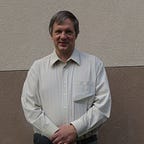Fred-Rick: I think you have raised a few more critical questions about the TDG.
To start my answer(s), I think it’s important to realize the average citizen does not view politics in the same way as political junkies. Most citizens do not spend significant hours of their day analyzing, conjecturing, and predicting the power plays happening within their government. Junkies think this is fun and normal. Average citizens would prefer government to be in the background of their lives. For example, 50% do not vote in USA; 35% do not vote in Canada. Many people who do vote take their vote mostly as a matter of civic duty. I suspect the same is in the PR countries where voter turnout is around 80%. Maybe another way to explain this is that most voters do not lose a lot of sleep if their preference is not elected. Political junkies often lose sleep after election day.
Even though voters in western democracies are fulfilling their civic duty when they vote, they are still often looking for an advantage for themselves when selecting a political party. If I am disabled, I want the party that seems to be enhancing disability benefits. If I am retired, I want the party that seems to enhancing pensions. If I am a farmer, I want the party that seems to be enhancing farming subsidies. If I am a successful business person, I want the party that seems to be lowering taxes. Average voters may not be spending a lot of effort to find their preference, but many are looking for their advantage within the simplistic messaging of the political parties. In other words, they are looking after themselves when they vote.
Representatives in the TDG, on the other hand, do not have a voter base that must be appeased. They are looking to: “What’s best for society?” This is a profound difference!
Rather than vote for a mandate, TDG voters will be trained to find someone in their neighborhood that has good character and capacity for governance. In a 200-person neighborhood, there may be five or six people that can fit these requirements. As long as the TDG finds one of them, it has done its job. Western democracy often finds people not suitable for the job, and voters are stuck with that person at least until the next election.
If elected representatives rise up the tiers, they will rise on the same basis as what got them elected at the neighborhood level: their good character and capacity for governance.
Part of that capacity is their ability to reach consultative decisions, where knowledge, experience, and wisdom of several people can be combined into one united decision that no individual could have attained by him- or herself. Consultation is not comproming. Compromising is a big feature of PR systems of government. Those TDG representatives who are better at consultation should rise higher.
When the TDG assumes governance, an early requirement for that “capacity” trait may be that the higher tiers have to “press the flesh” to make that connection with the citizens. They will have to travel and attend public meetings and be interviewed by the media. If this is indeed necessary (and I think it will be in early days of TDG governance), then the more subdued representatives shouldn’t rise very high in the tiers. The representatives in the next lowest tier will be their overseer. If the “press-the-press” requirement is not being fulfilled, the annual election will find someone else. The connection can be maintained between the highest tier and the average citizen. And when the average citizen sees a high quality person being consistently elected to the highest tier, the system will be more credible to the citizen even though the citizens does not have a direct say in the selection of that individual. Political junkies may not be able to understand this feature, but many average voters just want government to do a good job and move into the background of their lives.
In time, I believe, the requirement to press-the-flesh will become less important in a TDG government.
